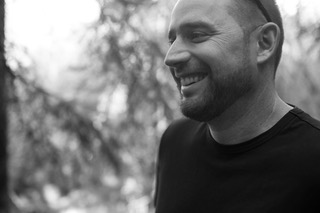ADHD, SLEEP AND ME: IT’S COMPLICATED
What it the connection?
Sleep should be simple. The sun goes down, your brain and body get sleepy, you go to bed and close your eyes and you drift into slumber. Well, not so fast! People with ADHD are more prone to (usually undiagnosed) sleep problems. On the other hand, people can be misdiagnosed with ADHD when they actually have a sleep disorder. Either way, getting to the bottom of your quality of sleep is often overlooked and can help you consider how to manage ADHD symptoms.
ADHD is always awake
Your neurobiology does not go off-duty when the day ends. ADHD works 24-7 to distract, delay and disorder your capacity to get restorative sleep. The outcome? ADHD symptoms get worse. Research during the last five years substantiates what ADHD experts have suspected for decades: ADHD has intrinsic sleep challenges. In fact, “restless sleep” was part of the 1980’s-era diagnostic criteria for ADHD. What is more boring to the hyperactive person than lying in the dark waiting for nothing to happen?
Buzzing brain or faulty sense of time?
Some adults say “I like to stay up late because it’s quiet and I can get a lot done”. In other words, daytime distractibility and disorganization can lead to late bedtimes. Yes, poor sense of timing is a lifelong trait where two kinds of time matter: now and not now. Others battle out their “brain chatter” when trying to fall asleep or playing video games or on social media.
Sleep deprivation with ADHD is not something you choose.
Should I see a physician or a therapist?
Sleep disorders often mimic ADHD symptoms, causing inattentiveness and restlessness in people who don’t have ADHD.
There are two types of sleep disorders. Primary – physical conditions that disrupt sleep i.e. obstructive sleep apnea, restless leg syndrome, delayed sleep-wake phase disorder or bedwetting in children. Secondary – behaviorally based problems i.e. co-existing anxiety or mood disorders or children who cannot make the transition to bedtime or in adults who follow habits that disrupt sleep. The first step is to review your sleep behaviors. If that doesn’t help, then consult your physician.
Help with sleep problems
Sleep deprivation is no joke and ADHD symptoms often take it from bad to worse.
- Trick the brain to surrender to sleep – dim the lights, change into pajamas, avoid screens of any kind an hour before turning in, keep the room cool with heavy comforters nearby, keep a journal or read a boring paperback.
- Delayed sleep phase syndrome – it is not uncommon for people with ADHD to become energized around 10 or 11pm. Your brain does not send sleep signals until 2am. Your biological clock is off-track. Morning light, melatonin and wearing blue light blocking glasses might help.
- Restless legs syndrome (RLS) – the urge to move your legs and ease the discomfort, but leading to sleeplessness, is increasingly linked to the dopamine neuropathways.
- Have a routine – go to bed and wake up at the same time, reduce alcohol and caffeine intake, exercise regularly.
- Organize your brain – stimulant medications can help many people with ADHD to focus on the task at hand, while tuning out distractions, whether it is focusing on paperwork or sleep.
Roché Herbst, M. A. R. Psych.























